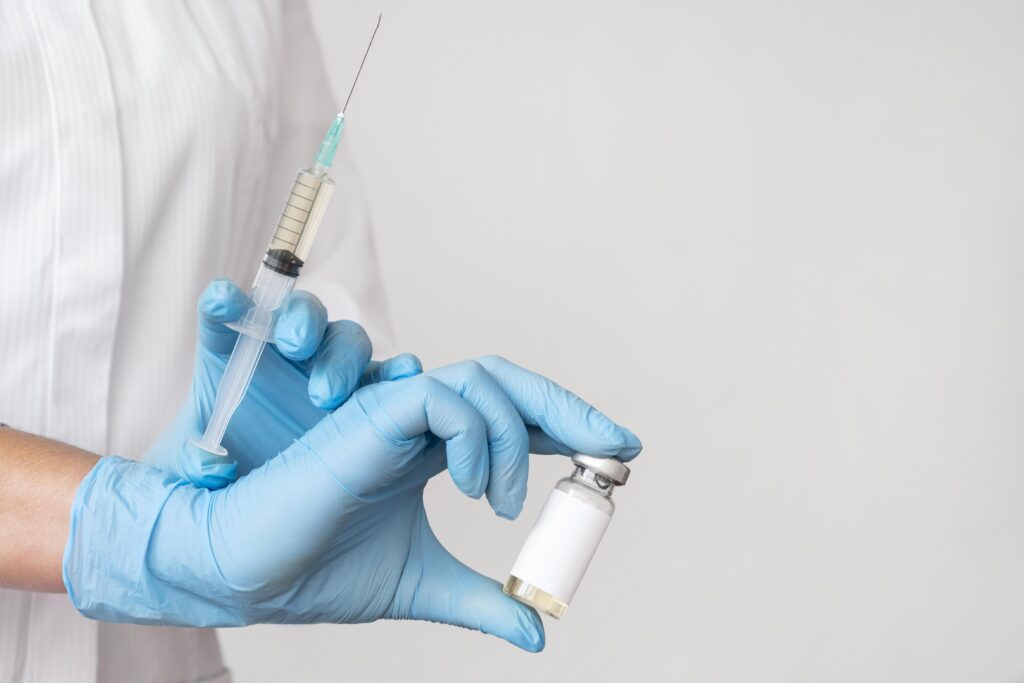Human papillomavirus (HPV) is a common sexually transmitted virus that can cause genital warts and various types of cancer, including cervical cancer, anal cancer, and throat cancer. Fortunately, there is a vaccine available that can protect against certain strains of HPV and reduce the risk of developing these health problems. In this article, we will explore what the HPV vaccine is, how it works, and why it is important.
The HPV vaccine is highly effective at preventing HPV infection and related health problems. However, like all vaccines, it is not 100% effective, and it does not protect against all types of HPV. Therefore, it is still important for individuals to practice safe sex and undergo regular screenings for cervical and other HPV-related cancers, even if they have been vaccinated.
What is the HPV vaccine?
The HPV vaccine is a vaccine that helps prevent infection by certain strains of HPV. There are currently three HPV vaccines available: Gardasil, Gardasil 9, and Cervarix. These vaccines are recommended for boys and girls starting at age 11 or 12, although they can be given as early as age 9. The vaccine is typically given in a series of two or three doses over six months, depending on the age of the person receiving the vaccine and the specific type of vaccine used.
How does the HPV vaccine work?
The HPV vaccine works by stimulating the immune system to produce antibodies that protect against the virus. The vaccine contains proteins that mimic the outer surface of the HPV virus, which helps the body recognize and attack the virus if it is encountered in the future. By receiving the vaccine, individuals can reduce their risk of developing HPV-related health problems.
Why is the HPV vaccine important?
The HPV vaccine is important for several reasons. First, HPV is a very common virus, and many people who are infected with HPV do not have any symptoms. This means that they may unknowingly transmit the virus to others, increasing the overall risk of HPV-related health problems. Second, HPV-related health problems can be serious and even life-threatening. Cervical cancer, for example, can be difficult to detect in its early stages and can spread quickly, making it harder to treat. By receiving the HPV vaccine, individuals can protect themselves from these serious health problems.
Is the HPV vaccine safe?
Yes, the HPV vaccine is safe. Like all vaccines, the HPV vaccine has undergone extensive testing to ensure its safety and efficacy. The vaccine is highly effective at preventing HPV infection and related health problems. Some people may experience mild side effects after receiving the vaccine, such as pain or swelling at the injection site, fever, or headache. However, these side effects are generally mild and go away on their own within a few days. In rare cases, more serious side effects have been reported, such as allergic reactions or fainting. However, the risk of serious side effects from the HPV vaccine is extremely low. The benefits of the vaccine in terms of protecting against HPV-related health problems far outweigh the risks of side effects.
It is important to note that the HPV vaccine is not a cure for HPV-related health problems. It is a preventative measure that can reduce the risk of developing these health problems. Therefore, individuals who have already been diagnosed with HPV-related health problems or who have a history of these health problems should still undergo regular screenings and follow their healthcare provider’s recommendations for treatment and follow-up care.
The HPV vaccine is an important tool for protecting against HPV-related health problems, including genital warts and various types of cancer. The vaccine is safe and effective, and it is recommended for boys and girls starting at age 11 or 12. If you or a loved one is in this age group, talk to your healthcare provider about getting the HPV vaccine and protecting yourself against HPV.
Who can give the HPV Vaccine?
The HPV vaccine can be given by a healthcare provider who is authorized to administer vaccines, such as a physician, nurse practitioner, physician assistant, or nurse. Depending on the country or region, some pharmacies, and public health clinics may also be authorized to administer the HPV vaccine. It is important to receive the vaccine from a licensed healthcare provider who can ensure that the vaccine is given safely and effectively. Your healthcare provider can also provide information on the recommended schedule for the HPV vaccine, potential side effects, and any other questions or concerns you may have about the vaccine.
How much does the HPV vaccine cost?
The cost of the HPV vaccine can vary depending on several factors, such as where you live, the specific type of vaccine used, and your insurance coverage. In some countries, the HPV vaccine is provided for free or at a reduced cost as part of a national vaccination program. In other countries, the cost may be higher and may be covered by private insurance or out-of-pocket expenses.
In the United States, the cost of the HPV vaccine can range from around $200 to $500 per dose, with a full series of three doses costing between $600 to $1500 without insurance. However, many insurance plans cover the cost of the vaccine, especially for children and adolescents, as the vaccine is recommended by the Centers for Disease Control and Prevention (CDC) and the American Academy of Pediatrics (AAP) as part of routine vaccination for adolescents.
It is important to check with your healthcare provider or insurance company to determine the cost of the HPV vaccine and any potential coverage or reimbursement options that may be available to you. Additionally, some clinics or healthcare providers may offer the vaccine at a reduced cost or on a sliding scale for individuals who are uninsured or underinsured.
In conclusion, the HPV vaccine is a safe and effective way to protect against HPV-related health problems, such as genital warts and various types of cancer. The vaccine is recommended by healthcare organizations around the world as part of routine vaccination for adolescents and young adults. While there may be some mild side effects associated with the vaccine, the benefits in terms of preventing HPV-related health problems far outweigh any potential risks. It is important to speak with your healthcare provider to determine whether the HPV vaccine is recommended for you or your child and to understand the potential costs and coverage options associated with the vaccine. Overall, the HPV vaccine is a valuable tool in the fight against HPV-related health problems and should be considered as part of a comprehensive preventative healthcare plan.



